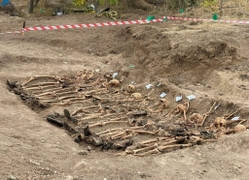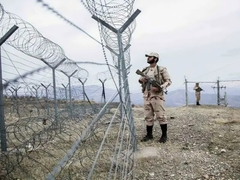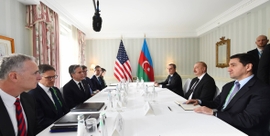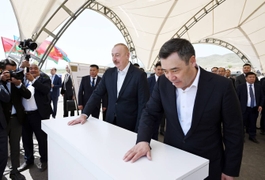The Russian and Azerbaijani foreign ministers have expressed confidence that a number of regional projects are going to be implemented.
Speaking at a joint news conference with newly appointed Azerbaijan's Foreign Minister Jeyhun Bayramov in Moscow, Russia's Foreign Minister Sergey Lavrov voiced his country's support to the active implementation of the projects, including the construction of the North-South transport corridor involving Iran and the East-West corridor engaging Turkey.
"The Russia-Azerbaijan-Iran energy bridge is also very relevant and demanded project," Lavrov added speaking alongside his Azerbaijani counterpart following their meeting on Wednesday, reported 1news.az news agency.
The idea of linking to one another's grids has been in the works for years. In 2018, the three Caspian littoral states. created a working group consisted of 18 people - six from each country - to discuss the issue of connecting the energy systems of the three countries. The group must prepare technical specifications for a feasibility study, which is expected to encompass the technical and economic aspects of the conditions for connecting the power systems and explore the possibilities for electric power transmission.
Baku describes the cooperation in a trilateral or quadrilateral format, particularly the integration of the three energy systems, as promising, Bayramov said on his part.
Answering the question about Baku's stance on the North-South corridor at the press conference, Bayramov informed that Azerbaijan has completed a new highway between Baku and the Iranian border, and in the next few months will finish building another highway connecting Baku with the Russian border. The Azerbaijani foreign minister also stressed that despite the Covid-19 outbreak, traffic volume on the North-South and East-West routes is increasing.
"Today we also spoke about the interest of our countries in promoting the Astara-Baku-Astrakhan route," Lavrov said, adding that this route is also within the North-South corridor.
To facilitate the realization of the International North-South Transport Corridor (INSTC) and the East-West Trans-Caspian Trade and Transport Corridor that links European markets to that of in Asia, Lavrov underscored the need to complete the Iranian section of the Rasht-Astara railway line, which is designed to allow the 7,200 km (4,474 mi) INSTC to pass through the Caspian region.
In December 2017, Azerbaijan put the Astara-Astara line online, which forms a part of the multi-modal network of rail, road, and sea routes that will carry goods from South and Central Asia to Finland in Europe. The continuation of the line in Iran is the Gazvin-Rasht-Astara railway.
"All this would be simpler, more effective and more useful for multilateral cooperation within the framework of creating such a corridor if there were no illegitimate unilateral [U.S.] sanctions against the Islamic Republic of Iran," the Russian foreign minister added. "But even in this situation, I am sure, we will implement everything, which will benefit the huge region of this part of Eurasia."
Following the unilateral withdrawal in May 2018 from the Iranian nuclear deal brokered under the Obama administration in 2015, the administration of U.S. President Donald Trump imposed new sanctions on Iran, vowing to reduce Iran’s oil exports to zero. Dozens of foreign companies suspended investments in the Iranian oil and gas industries as a result of weakened confidence in doing business in Iran.


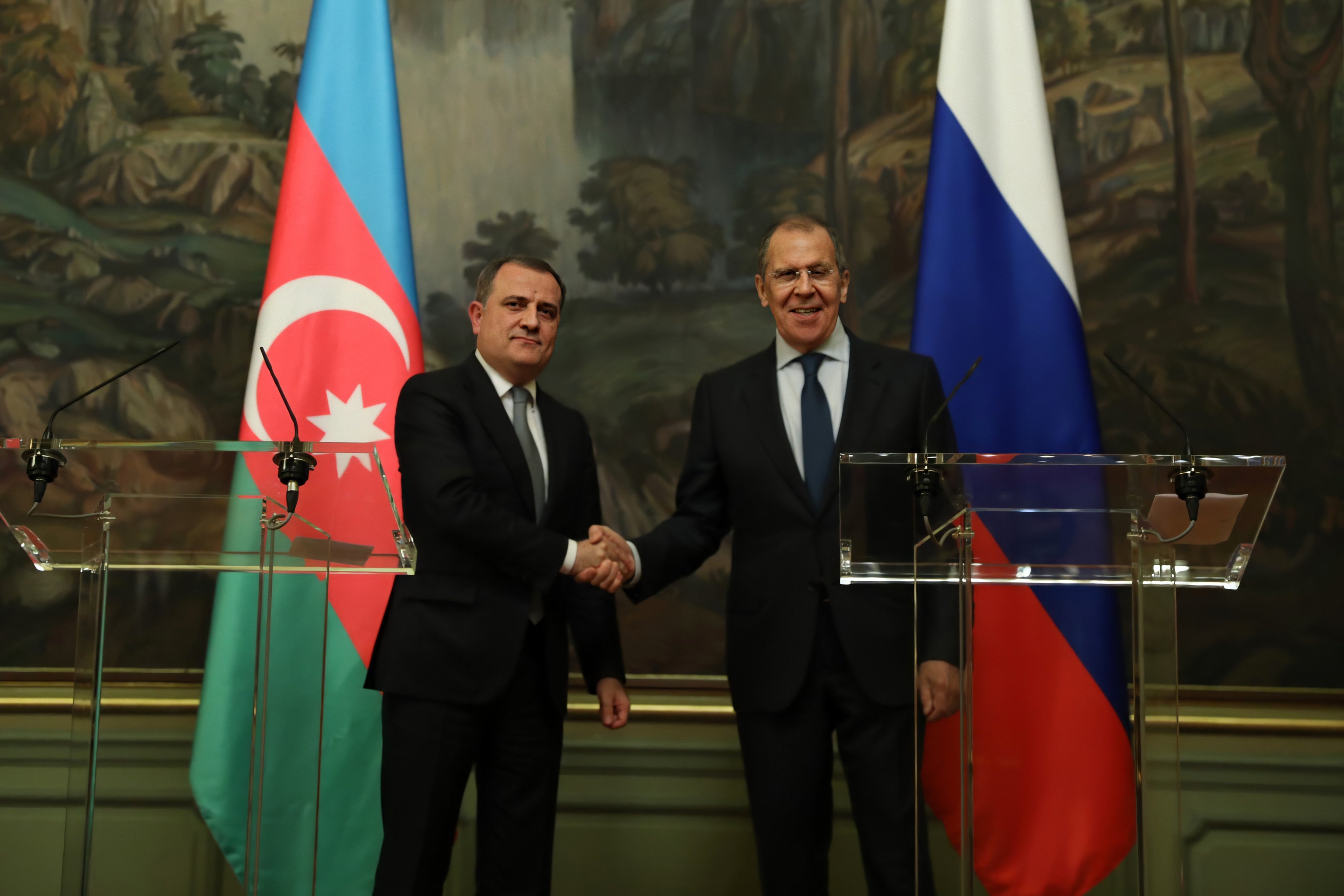




 President Ilham Aliyev shed light on the evolving contours of the peace process with Armenia during an international conference in Baku this week. ...
President Ilham Aliyev shed light on the evolving contours of the peace process with Armenia during an international conference in Baku this week. ...
 A draft resolution aimed at preventing the development and deployment of weapons of mass destruction (WMDs) in outer space, co-sponsored by Japan a...
A draft resolution aimed at preventing the development and deployment of weapons of mass destruction (WMDs) in outer space, co-sponsored by Japan a...
 Kyrgyzstan has joined the extensive reconstruction efforts in the Karabakh region of Azerbaijan, after a series of mega initiatives were launched b...
Kyrgyzstan has joined the extensive reconstruction efforts in the Karabakh region of Azerbaijan, after a series of mega initiatives were launched b...
 The Iranian and Cuban transport ministers have discussed expanding maritime and air transportation cooperation.
The Iranian and Cuban transport ministers have discussed expanding maritime and air transportation cooperation.
